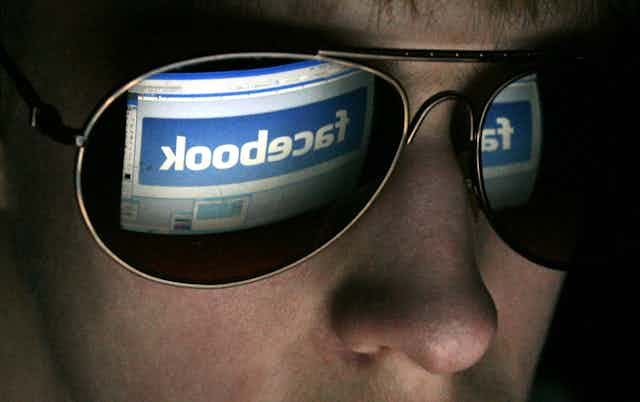Facebook is currently trialling a range of new buttons that could influence how your data is harvested.
The trials have been construed by some observers as a response to the corporation’s anaemic share price, media interest in competitors such as Pinterest and Twitter, and forecasts that many users will move to the “next new thing”.
It was not so long ago that governments exhorted people to button their lips, because someone might surreptitiously exploit sensitive information.
There are times when you can have too much sharing and when what you reveal - for example the “amusing” photo or indicator of a relationship - comes back to haunt someone else, rather than just the person who should have kept it buttoned up.

Facebook of course is promoting the trials as evidence of its commitment to ongoing improvement of the “Facebook experience”.
Reality is a bit more complicated. Facebook is an embodiment of the attention economy – an economy whereby, faced with information overload, we no longer read, we skim.
It is also a portal through which consumers provide information about themselves and – by inference – about their friends.
Share
Two decades of research by Granovetter and others on the social graph demonstrates that information about your likes, dislikes, affiliations, purchasing patterns and other attributes can be extrapolated to provide a profile of your associates.
If I have information about enough of your associates I can covertly build an accurate profile of you, even though you haven’t volunteered information and believe that your privacy is being respected.
Facebook is founded on acquiring that information and sharing it with other entities. Those entities might be individual businesses or large-scale data aggregators whose raison d’etre is profiling on behalf of banks, retailers, employers and governments.
Like
At the moment the “like” button, employed by many Facebook users, serves as an indicator that a friend or associate is “live” (i.e. isn’t a robot) and has some interest in the person/entity who is “liked”.
Facebook may well deploy an “unlike” or even “hate” button, which would indicate that the associate disapproved of a particular statement or image, thereby allowing Facebook to parse a cohort on the basis of political or other affinities.

Such parsing is major business in the US and is becoming so in Australia. This can be seen in, among other things, push-pull polling and highly targeted funding appeals to cohorts such as the right-leaning, dog-owning Baptist medical practitioner with an interest in designer cheeses and wildlife conservation.
Given what we know about product and teacher rating sites – where everyone can award five stars or five rats – there may well be interest in evaluating corporations and products rather than the “hot babes” or “bad teachers”.
But interesting legal issues arise (such as defamation, service provider liability, removal of pseudonymity, spoofing) alongside the potential for revenue.
“Want”, “Collect” and “Buy”
Depending on its performance in the current trial, Facebook may deploy a “want” button, with you – or your friends – indicating that you want a specific product or service, as promoted by this or that commercial entity.
That indication of a potential market might be addressed through targeted advertising (if a friend’s page features the word “baby” you and your cohort of twenty-something female friends will shortly see lots of ads for maternity gear and nutraceuticals).
Retailers in the trial can also add “collect” buttons to news feed posts about their products. As with the “want” button, clicking this will save and share products to a “wishlist” on users’ profiles.
That wishlist, in turn, hosts a “buy” button – also being trialled – offering a click-through feature to buy a given product, setting up Facebook as a competitor to Amazon. Of course, in clicking through, users provide the company with yet more information about themselves and, by inference, their associates.
If you are conscious of what is going on, or what might go on, it might be best to button your lips and watch out for the “likes”, “collects”, “buys” and “wants”.
Show and tell
Can Facebook do this? Will Australian privacy law come to the rescue? Can we trust Facebook to act as an exemplary global corporate citizen?

The answer in the absence of new regulation is that Facebook can of course do all sorts of things.
You agreed to be data-mined when you signed up to a service that changes its terms and conditions on an ongoing basis. You have waived much protection and cannot claw back the information.
Facebook continues to experience difficulty with regulators and other agencies in Australia and overseas. It’s being criticised for a lack of transparency in partnerships.
Its response to recurrent Victorian Police requests to expunge problematical statements regarding the alleged killer of Jill Meagher was underwhelming. It has responded to EU requests to restrict its biometric tools but hasn’t restricted in other regions.
If you want to change Facebook’s corporate behaviour, think before you press the button. Then ask why Facebook and partners won’t share with you what they know about you.

